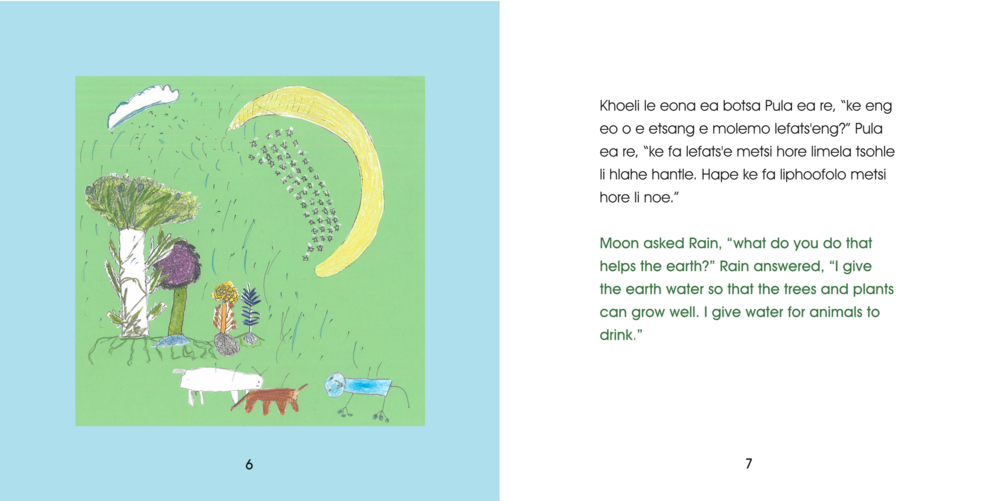Why Bilingual Books?
Paleng books are almost exclusively bilingual. This may seem counterintuitive given that English is the Language of Learning and Teaching (LOLT) in Lesotho schools. Why not immerse children in English from the start? We believe that the best literacy foundation is laid through the mother tongue.
Research across the world clearly shows that children learn to read best in a language they can speak, since the skill of reading is built upon, and is an extension of, spoken language. Learning to read in one’s native language also keeps it alive. This is important, because what comes with language is a whole cultural and social heritage. Mother tongue, in both its spoken and written forms, is precious. But becoming literate in English at some point is also important. In the words of one Basotho teacher, it is the language “that puts the bread on the table”. Children’s academic success and many people’s working lives depend on a degree of proficiency in English.
Hence, we have made the decision to create bilingual books, giving children simultaneous access to both their mother tongue and English. Watching children read them in our library, we see that these little books become a teaching tool in themselves. The single most common comment we get from children is “this book is helping me to learn English,” and we have watched children using them to translate back and forth to one another with great dedication and enthusiasm.
Our translation process is two-way: sometimes our stories emerge in English, and sometimes in Sesotho. We currently have two dedicated in-house translators, Khothatso Ranoosi (Paleng co-founder) and Lineo Nkabane-Sekopo (board member), a qualified translator and lecturer at the University of Johannesburg. The translation process is complex with many factors to take into account, and we make sure we do it in the most considered and accurate way possible. We are one of very few organisations, if not the only one, providing bilingual material to rural children.
We hope to take the valuable knowledge we’ve garnered through story writing and translation and apply it to books for South African children. We are currently translating our books into Sesotho-South Africa, which is orthographically different from Sesotho-Lesotho. One day we would like to print and distribute these books in South Africa, particularly into the Free State, where Sesotho is widely spoken.

